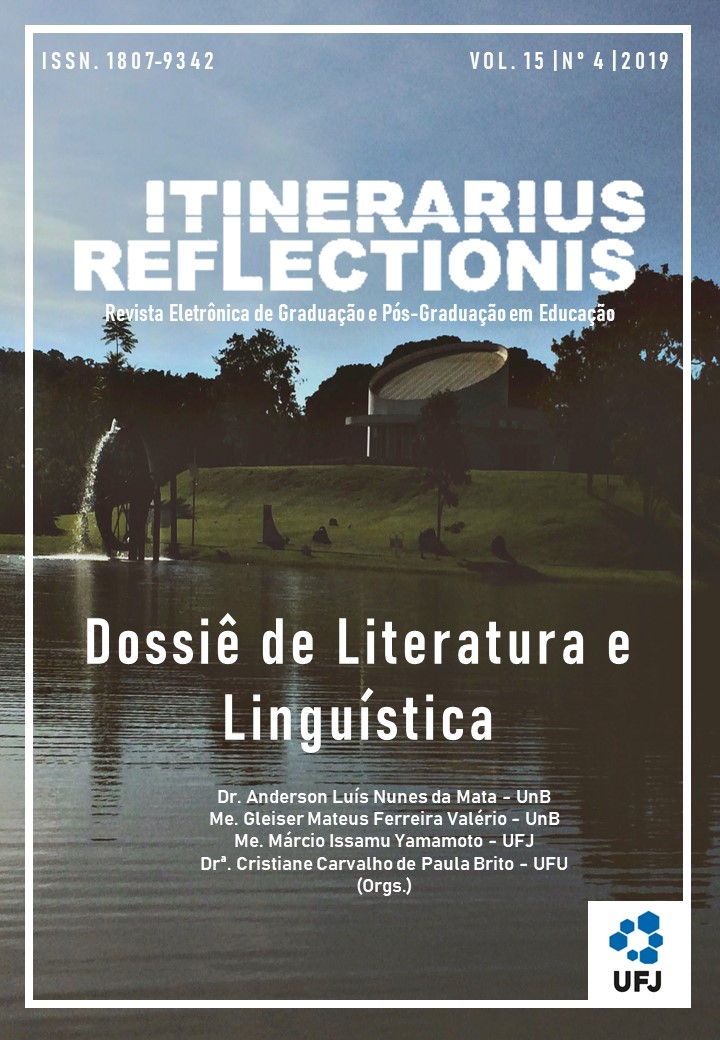Práticas de leitura de alunos do curso de letras reveladas em seus memoriais de formação
DOI:
https://doi.org/10.5216/rir.v15i4.60232Abstract
Abstract: This article, an excerpt of our master's dissertation, aims to present an analysis of how the reading practices of teachers in initial education, students of the Federal University of Ceará (UFC), develop from the construction of formation memorials, in view of their life narratives and reading formation. The theoretical basis, on which we base our research, came from Bakhtin's (2003) postulates, the conceptions of researchers who study life history and education, which are Josso (2010) and Passeggi (2010) and the contributions of studies that thematize the reading, such as Jouve (2002), Martins (1997) and Petit (2013). Methodologically, we use the perspective History of Life and Formation elaborated by Josso (2010). In the light of this approach, we proceeded with the qualitative analysis of the corpus consisting of five reading education memorials written by students of the Language Course, in the discipline of Biographies, offered in 2018.1. Based on an intuitive horizontal analysis of the data, the following categories were constructed: childhood reading practices, adolescent reading practices, undergraduate reading practices, being a public school student, access to books and the mother as encouraging reading. Then, we performed a vertical analysis of the memorials that allowed us to reach the following results: the reading presents significant dimensions of affective, repairing and transforming values ??that are peculiar in the life trajectory of each subject. We conclude that reading can permeate and strengthen affective relationships, provide a restorative effect in times of pain and psychological and physical suffering, as well as being able to transform a whole life story.
Keywords: Self-narratives. Formation memorials. Reading.
Downloads
Downloads
Published
How to Cite
Issue
Section
License
Os artigos encaminhados para publição na revista ITINERARIUS REFLECTIONIS deverão ser originais e não publicados ou propostos para tal fim em outra revista. Aceitam-se artigos escritos em Português, Espanhol e Inglês. A revista ITINERARIUS REFLECTIONIS se reserva o direito de efetuar, nos originais, alterações de ordem normativa, ortográfica e gramatical, com vistas a manter o padrão culto da língua, respeitando, porém, o estilo dos autores. As provas finais não serão enviadas aos autores. Texto sobre Copyright do conteúdo da Revista.


